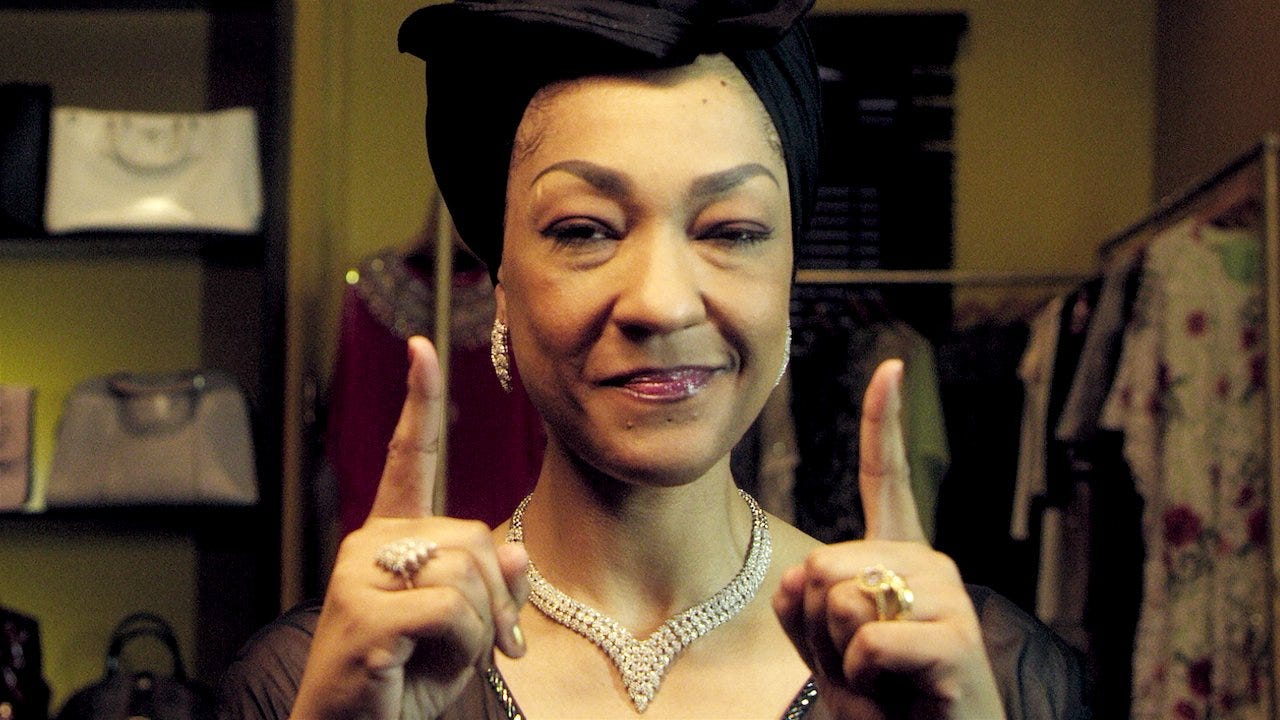Issue 23: A Personal Note
One of my favourite things about newsletters is how personal they can be. Today’s letter is pretty much a personal essay. A bit long too.
In 2011, the year I finished secondary school, my brother graduated university with a first-class. Later that year, my sister graduated top of her class and top of her faculty with a first-class. Right before or after this, I told a distant relative that I was going to go to uni, study law and be a first-class student. He laughed and said something about me not matching up to my siblings. I don’t recall his exact words. He said it in a friendly tone that tried to downplay the gravity of his words. I felt bad for a minute, and then I thought, you know what, he’s probably right.
My parents love books and so, they got us pretty invested in them early on. I’d read Chicken Little, and a weird book about penguins, cover-to-cover before I was six. Then, Enid Blyton and books like “Secret Garden”, “The Misfit” and “Chronicles of Narnia” before I was ten. My mum was all about academics. She scrutinised every report card, every half-term assessment. Unlike now, she wasn’t quick to celebrate wins. Did you come first? “Congratulations.” You’re taking all the prizes? “Good for you.” She pretty much took for granted that her four kids were mostly straight-A students. Still are. For me, this changed in secondary school (I went to ISL for a bit). I had to endure a ton of vocal comparisons to my older siblings from teachers who’d taught them.
In a class of 50, I was typically in the first ten — sixth or eight. My individual grades weren’t great. I was failing science and maths, so I had to enroll in private lessons. These didn’t help much. My math teacher was good at math but mostly impatient at explaining stuff. If you asked her to repeat an explanation, she’d rather say something cruel in Yoruba. I was playful and mostly interested in reading books. I’d started reading John Grisham and Sidney Sheldon at this point. ISL has or had this crazy idea that there should be special classes for students who were really smart. So in a set, there were about six classes of 50 students each. One of those classes was the special class. I was never in one of those classes, even though my siblings were all through their stay in the school.
If my mum was the kind of person who compared kids, she’d probably have asked me ten times a day why I wasn’t in the special class or winning prizes. That was never a conversation. It wasn’t like she was impressed with my grades. She wanted me to be better at individual subjects and felt I could do with less TV. I remember once, I did a mock exam for junior WAEC. I came 15th (in a class of over 50). I felt so awful, I didn’t even bother to show anyone the report card. I hid it between a pile of books.
Everyone should have access to an enabling environment capable of helping them thrive. In most Nigerian schools, it’s the student’s fault for not succeeding, never the teacher who might have failed to impact knowledge. An enabling environment is pretty much a safe space that caters to (and fosters) specific learning and working needs. This shouldn’t be a luxury, it should be normal. In science, we are taught that trees and plants compete for their nutrition, water, and sunlight. This isn’t the complete truth. There is scientific proof that trees are social beings. Forest trees, in particular, help each other survive: they are cooperative and interdependent.
In 2008, I started at a new school, where interestingly enough, canes were not being used. This meant that if I got 15/20 in a math test, my math teacher wouldn’t give me five strokes of the cane, which is pretty much what happened with my lesson teacher in ISL.
In addition, I was pretty much a nobody (i.e. no one knew my siblings and by extension, me). It was a smaller school, with 20 or so students in a class. There were more opportunities: press club, debating society. The library was my haven. Heck, I once solved a math problem that no one in the science class could solve. There were a ton of external and internal competitions to take part in, many of which I won.
It was a different reality, mostly because the teachers cared enough about the growth of individual students. Nobody wanted to see you fail, as it was a reflection on them. I wasn’t afraid to fail though, neither was I afraid to try out new things.
Did you ever read the story of how Tortoise lost his shell? In primary school, they sold these exercise books that had folktales behind (where arithmetic and multiplication tables would be in oxford notebooks). In the story, Tortoise is very proud of his skills. He runs faster than the hare and is in love with his shiny shell. One day, he overhears that birds are going to have a feast in heaven and he desperately wants to go with them. The birds, kind as they are, sew some feathers to his sides to help him fly. On the day they leave for heaven, Tortoise is so fast and so excited. He gets to heaven before every other bird and eats everything in the feast before they arrive. When they do arrive, Tortoise is stuffed with food. They’re so mad at him that they collect their feathers and leave him to fall back to earth. When he lands, his shells break and there’s a whole thing with the other animals on earth and you know, the “moral lesson” follows.
Tortoise has always been the scapegoat of Nigerian folklore — we use him to tell naughty kids to behave or to not be greedy. I wonder if there’s a thing or two to learn from him, and apply, within whatever limitations we deem necessary. For example, I want to be able to toot my own horn, the way Tortoise did, and not be afraid to try new things or fail, the way he did when he decided he wanted to fly with the birds.
Every now and then, I think about what that relative said, not in the “I told you I’d succeed” way, but with sympathy. It does feel weird to go around discouraging people, instead of helping them succeed. In the past few years, and especially now as a student in an educational system that actually works and cares, I’ve been very lucky to work with people who care about my growth. I’m not a fan of cliché, motivational sayings, but it is true: we do rise by lifting others, there is enough room at the table, etc. What if this relative had said: you know what, your other uncles are lawyers, so they’ll be helpful to you, or, If you want to get a first-class, you should read these books and spend less time doing this other activity.
At every performance review in the past two years at BCM, I’ve gotten an A — which means I do really good work and move the company forward. In the past, they were A minuses, but for the first time, during my last appraisal, I got an A+ (feel free to congratulate me) — this is in spite of going to school and moving to another country. People have asked how I did it — balanced school and work.
While I know my capabilities and that I’m hardworking AF, it’s also thanks to the enabling environment of working with people who want to help you succeed from the CEO to your line manager and people who you supervise. Just having that culture and growth mindset is important. In my time here, I’ve learned that it pays to ask for help. I’m trying my best to continue the tradition by paying it forward. If we must change the culture of bringing people down, we must start with ourselves.
Maybe in a subsequent post, I can write about what makes you an A person in BCM. If you’d like that, please leave a comment. PSA: all the memes in this letter were downloaded from memes.zikoko.com, a database of exclusively African memes — one of the products I helped launch in 2020.
If you reached this part of the letter, you’re a superstar. Sorry for keeping it long!
Things I enjoyed this week.
Britney Spears Was Never in Control Why did I ever believe a teen girl could hold all the power?
What Airbnb and Strava Know About Building Emotional Connections with Customers
Next week, it’s an interview with a literary magazine publisher! Don’t forget to like, comment, share! Have a good weekend!












And oh I forgot to mention, congratulationssssss on your appraisal.
I'm such a BCM fan and I'd want you to do a post on what makes an A person.
Also, I appreciate the candour that you pour into your newsletters especially this one, even more because I currently teach and I'm stopping to evaluate my teaching methods; why did that guy score zero even when he follows in class, why did someone I thought very bright submit an empty sheet, lol, a whole litany of why's.